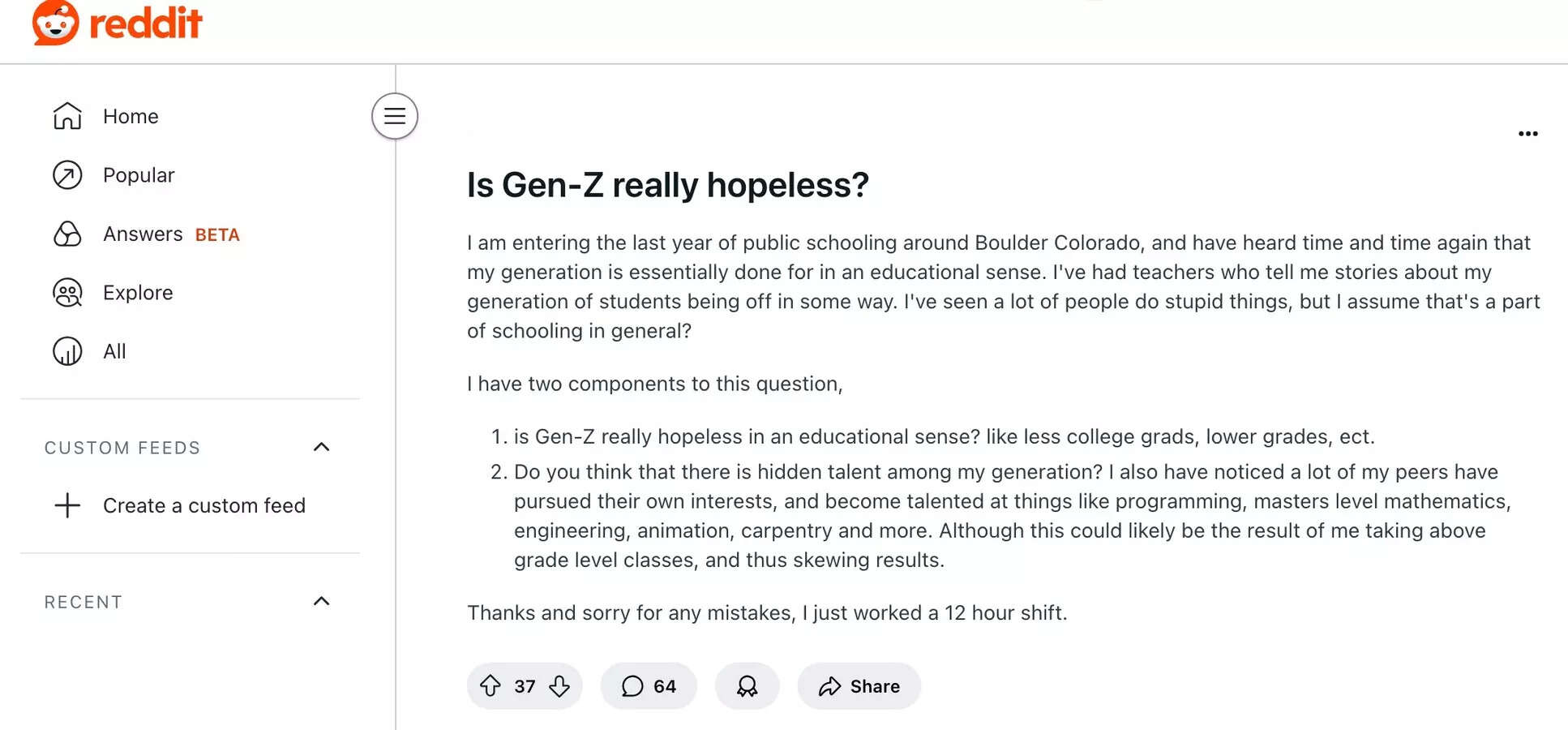
Rethinking academic achievement
For generations, academic success has been measured by linear milestones such as examinations, grade point averages, college admissions, and degrees. But for Gen Z, that traditional model does not encapsulate the full picture of intellectual growth or career readiness.Consider India as a case study. According to the Deloitte Global 2025 Gen Z and Millennial Survey – India Country Report, 26% of Gen Z respondents are already working while pursuing formal education. That statistic signals a generational shift, not away from education, but towards a more integrated, pragmatic model. These young individuals are not rejecting learning; they are aligning it with employment, skill-building, and economic independence.Rather than awaiting a diploma to validate their competence, they are cultivating experience in parallel with their academic journey. It is not disengagement, it is recalibration.
Learning beyond the classroom
A Gen Z student immersed in their phone during class may seem distracted or apathetic, but dig deeper and the reality often contradicts the assumption. They might be watching a crash course on Python programming, following a digital art tutorial, or engaging in peer-led forums discussing complex scientific concepts.This generation thrives on self-guided exploration. Their educational ecosystem extends far beyond institutional walls. Today, platforms offering micro-learning modules, open-source resources, and real-time collaboration have transformed how knowledge is acquired and applied.Rather than absorbing content passively, they actively curate their learning experiences. They are not disinterested in education; they are simply redefining its form and function.
The paradox of quiet brilliance
The Boulder student expressed curiosity about whether their perception was skewed by taking advanced classes. While that may be partially true, it would be reductive to assume that talent resides only within top academic tracks. Gen Z’s capabilities are distributed across a spectrum of learners, often revealed in non-traditional domains.The disconnect arises not from a lack of ability, but from outdated expectations about how and where that ability should manifest. Traditional metrics often fail to capture the interdisciplinary, project-based, and portfolio-driven nature of Gen Z’s work.
So, is Gen Z really hopeless?
Let’s flip the question. If a generation is redefining how and where it learns, is it fair to judge it by yesterday’s metrics?To be clear, Gen Z is not without its challenges. The psychological toll of growing up in a hyperconnected, performance-driven digital landscape is real. Anxiety, burnout, and information fatigue are legitimate concerns. But these struggles are not rooted in disinterest or laziness. Often, they stem from the pressure to succeed across multiple domains simultaneously.In response, many Gen Z learners are becoming intentional in how they use their time and energy. They are not afraid to forge uncharted paths, blending formal education with internships, entrepreneurial ventures, and independent projects. They are learning iteratively, not linearly.The Reddit user ended their post with a thoughtful question: “Do you think there is hidden talent among my generation?” The answer is almost self-evident. The talent is not just hidden. It is emerging in new forms, under new timelines, and through new mediums.Gen Z is not failing. They are simply diverging from the models we grew up with and if we continue to judge them by obsolete standards, we may miss what is, in fact, a profound evolution in how learning happens.TOI Education is on WhatsApp now. Follow us here.





